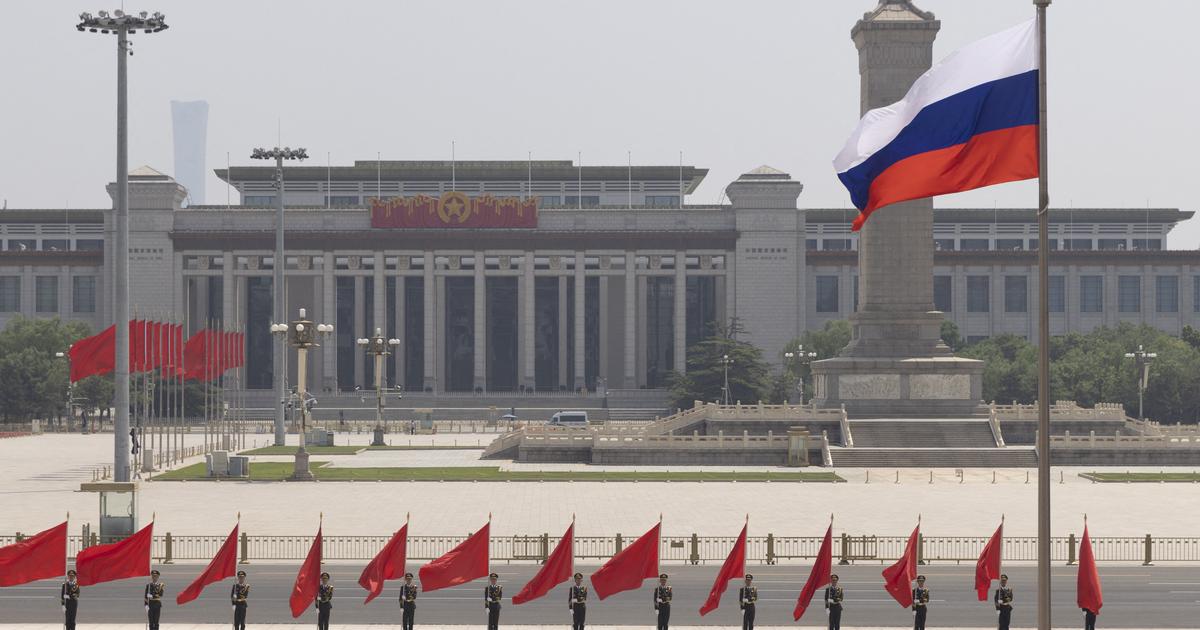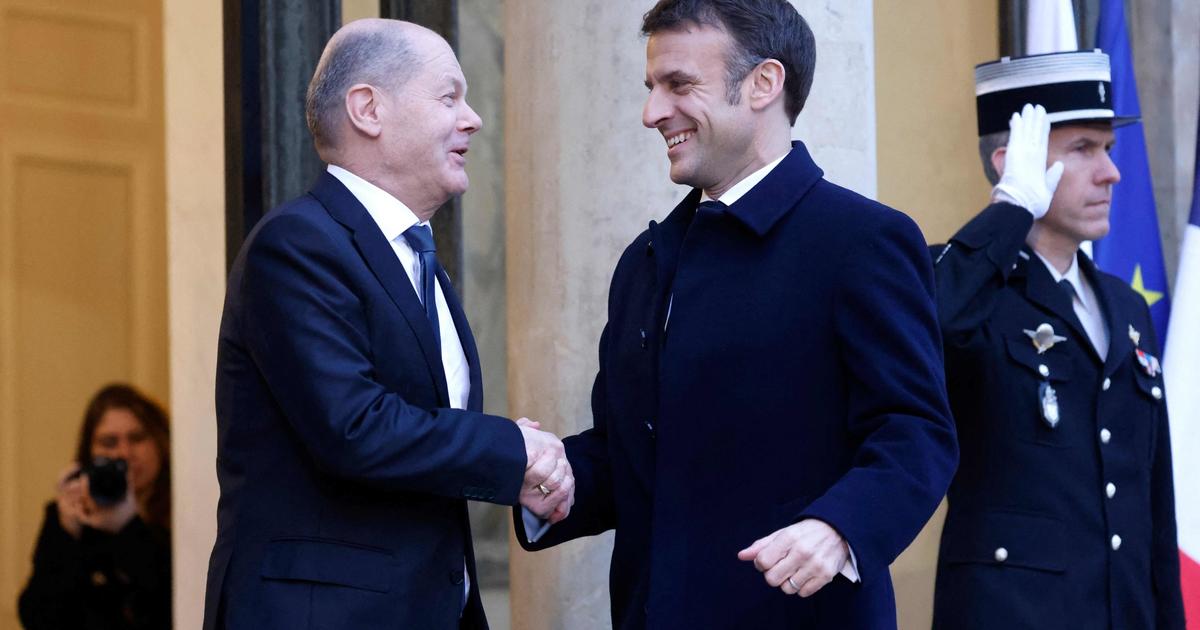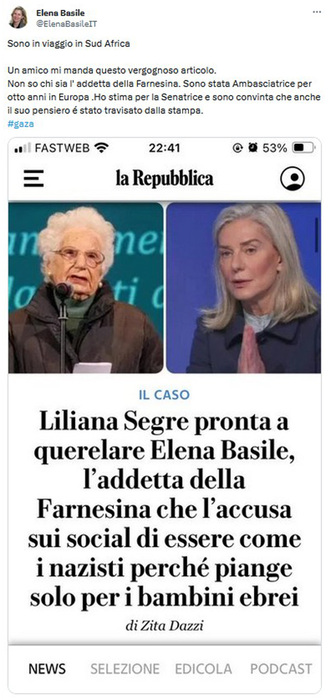Enlarge image
American diplomat Karen Donfried:
"Any loose talk about the use of nuclear weapons is irresponsible."
Photo: Evrim Aydin / AA / Abaca Press / ddp
DER SPIEGEL:
Ms. Donfried, Russia is gaining ground in eastern Ukraine, and the Ukrainian army is also coming under pressure in the south.
Are we seeing a turning point in this war?
Donfried:
Clearly, we are in a different phase of the war.
On Feb. 24, we saw Russia undertake a full-scale invasion of Ukraine from the north, from the east and from the south.
Around the end of March, we saw Russia abandon its military efforts to take Kyiv, withdraw those forces and make the pivot to the Donbas.
A lot of military analysts were saying at the time, OK, this is a big problem for Ukraine because Russia is going to be able to concentrate its forces in the south and bombard the cities there with artillery.
That's essentially what we have been seeing.
The Russians are making gains.
But it is not easy for the Russian side either.
We are seeing the United States and its allies and partners continue to provide military assistance to Ukraine, including with increasingly effective weapons.
It's just not clear to me how this plays out.
DER SPIEGEL:
But Ukraine is running out of ammunition for heavy artillery.
Is the West really doing enough to support Ukraine?
Donfried:
If you are sitting anywhere in Ukraine, none of us can ever be doing enough.
Ukraine is fighting for its existence, its sovereignty and its territorial integrity.
Looked at from that perspective, they are rightly demanding more.
If you are sitting in the United States, then, you know, let me speak as an American: we are doing a lot.
On May 21, President Biden signed a $40.1 billion emergency supplemental funding package.
We had earlier signed a $13.6 billion supplemental.
DER SPIEGEL:
Immediately after Russia's invasion, German Chancellor Olaf Scholz gave his "watershed" moment speech in parliament, which was well-received in Washington.
But to date, Germany hasn't delivered heavy weapons to Ukraine, which is causing great anger not only in Kyiv, but also in Poland and the Baltic states.
Donfried:
I was struck by that speech that Chancellor Scholz gave because it overturned, in many cases, decades of German policy.
For example, the decision to send weapons to a conflict zone, the call for 100-billion-euro special fund to strengthen Germany's military, saying that Germany, going forward, would spend more than 2 percent of its gross domestic product on defense.
As someone who has watched Germany for a long time, I thought: Wow!
This is exciting.
Now, does it take time to put all these things in place?
yes
I know there are lots of people in Germany who feel this should all be moving more quickly.
But I think these decisions are important.
We welcome you here in Washington.
I am in the camp of those saying: This is fantastic, welcome news.
DER SPIEGEL:
Chancellor Scholz has always avoided speaking about victory for Ukraine in the war against Russia.
And French President Emmanuel Macron has even warned against humiliating Vladimir Putin.
Isn't that rhetoric too lukewarm considering that this is a dictator who doesn't shy away from mass murder and war crimes?
Donfried:
We have President Biden himself very clear in saying that we do believe Russia is committing war crimes in Ukraine.
We take very seriously the need for accountability.
When it comes to the question of how does this end, I think everyone in the Biden administration has been clear that we imagine this only ends with a negotiated settlement.
But we are not at the place right now where that diplomatic solution seems feasible because the Russians have shown no sign of being willing to participate in good faith negotiations.
DER SPIEGEL:
At the moment, it seems more than doubtful that Ukraine will be able to retake the Donbas.
How can this was still end with a success for Ukraine?
Donfried:
I do not want to underestimate the Ukrainians.
What we've seen Ukraine do since Feb. 24 has been nothing short of remarkable.
Their prowess, their bravery on the battlefield has certainly impressed me, and I think everyone in the administration.
You see incredibly strong bipartisan support in this country for Ukraine.
This is a country that is quite divided politically.
And Ukraine is one issue where we are talking from the same song sheet.
That has to do both with the underlying values and principles we Americans hold dear.
It also has to do with the incredible respect we have for Ukraine.
I believe that President Zelenskyy has shown himself to be a tremendous wartime leader.
We in the US are not defining success for Ukraine.
Ukraine has to define that.
And Putin has to define success for himself.
We already saw him change his war aims once in late March, when he shifted from Kyiv to presumably going after the whole country into this focus on the Donbas.
And honestly, Putin is the one person on this Earth who could stop this war tomorrow.
DER SPIEGEL:
Chancellor Scholz even spoke of the danger of a nuclear war.
In your view, are there any signs that the Russian president might use his nuclear arsenal?
Donfried:
We have been very clear with Russia that the US and Russia bear a very special responsibility around nuclear weapons.
And we think that any loose talk about the use of nuclear weapons is irresponsible.
DER SPIEGEL:
The war in Ukraine has brought NATO two new candidates for membership: Finland and Sweden.
At the moment, though, Turkey is blocking their admission.
Why?
Donfried:
Turkey has raised its concerns specifically with regard to the Kurdish Worker's Party (PKK).
We have been very supportive of Turkey, Sweden and Finland having this conversation.
Turkey is supportive of NATO's open-door policy, and we are confident that Finland and Sweden will be welcomed into the alliance.
There is broad support for Finland's and Sweden's membership.
We will see this through.
DER SPIEGEL:
Ukraine is currently seeking to become a European Union member state.
Should Kyiv, at least as a sign of solidarity, be granted the status of candidate country?
Donfried:
As you know, we are not a member of the EU, and we try not to tell them what to do.
We have been very clear that we are extremely supportive of Ukraine's Euro-Atlantic integration, and that includes the EU.
We do very much support Ukraine's membership in the EU and we will look forward to the European Council's decision on this.
DER SPIEGEL:
President Biden has stated that his foreign policy focus will be China.
Does this mean that Europeans will have to rely more on themselves and less on the US in terms of defense matters in the future?
Donfried:
So, Europe standing on its own feet is a good thing.
The United States has always wanted the most effective allies in Europe that we could have because it makes us stronger.
President Biden campaigned on and came into office saying he wanted to revitalize our alliances and partnerships.
What you've seen over the past almost year and a half now is the central importance of those alliances and partnerships.
We have stood so closely together in the face of Russia's unprovoked aggression against Ukraine.
We have buttressed NATO's eastern flank and put in place unprecedented sanctions against Russia.
So, that's all to the good.
Whether the US is sort of pivoting away from Europe to focus on China?
I think what you are seeing, and I am going to use an American expression here, is that we can walk and chew gum at the same time;
that we
collectively with our European allies and partners, both need to be supporting Ukraine against Russian war at the same time that we have that broader geopolitical perspective on what China means for our future, our security and our economy.
We all watched in early February as Xi and Putin agreed on their joint declaration on the "No Limits" friendship between Russia and China.
We have all listened to China support Russia's narrative around Ukraine.
The US and our European allies and partners as well have been making clear to China that any material support for Russia in this war would change the nature of that relationship.
So, it's not that we do one thing and our European allies and partners do something else.
both need to be supporting Ukraine against Russian war at the same time that we have that broader geopolitical perspective on what China means for our future, our security and our economy.
We all watched in early February as Xi and Putin agreed on their joint declaration on the "No Limits" friendship between Russia and China.
We have all listened to China support Russia's narrative around Ukraine.
The US and our European allies and partners as well have been making clear to China that any material support for Russia in this war would change the nature of that relationship.
So, it's not that we do one thing and our European allies and partners do something else.
both need to be supporting Ukraine against Russian war at the same time that we have that broader geopolitical perspective on what China means for our future, our security and our economy.
We all watched in early February as Xi and Putin agreed on their joint declaration on the "No Limits" friendship between Russia and China.
We have all listened to China support Russia's narrative around Ukraine.
The US and our European allies and partners as well have been making clear to China that any material support for Russia in this war would change the nature of that relationship.
So, it's not that we do one thing and our European allies and partners do something else.
We all watched in early February as Xi and Putin agreed on their joint declaration on the "No Limits" friendship between Russia and China.
We have all listened to China support Russia's narrative around Ukraine.
The US and our European allies and partners as well have been making clear to China that any material support for Russia in this war would change the nature of that relationship.
So, it's not that we do one thing and our European allies and partners do something else.
We all watched in early February as Xi and Putin agreed on their joint declaration on the "No Limits" friendship between Russia and China.
We have all listened to China support Russia's narrative around Ukraine.
The US and our European allies and partners as well have been making clear to China that any material support for Russia in this war would change the nature of that relationship.
So, it's not that we do one thing and our European allies and partners do something else.
DER SPIEGEL:
During his tenure in office, Donald Trump openly flirted with the idea of leaving NATO.
Do we Europeans need to prepare for the day when there is a president in the White House who is no longer committed to NATO?
Donfried:
What you've seen over the past year and a half is how enduring the trans-Atlantic bond is.
In the run-up to the Feb. 24 invasion, the US shared an inordinate amount of intelligence with its European partners.
We consulted on a regular basis with them.
We weren't saying, "Here's what we're going to do, follow us."
We said: "Hey, let's talk about what the right strategy is."
As you know, not all of our European allies had the same assessment as the US about whether Russia was going to launch that full-scale invasion against Ukraine.
But they all agreed that if Russia was going to launch that full-scale invasion against Ukraine, it would have profound consequences.
That led, in turn, to us working very closely on the response package, that package of sanctions and export controls,
which meant we could immediately respond to Russia's aggression.
The lesson I take from this is not, you know, let's think about how we move away from each other.
We need to use any opportunity we have to show that our trans-Atlantic cooperation delivers for our citizens, that working together leads to better outcomes for our citizens.





/cloudfront-eu-central-1.images.arcpublishing.com/prisa/EI2TK7EPKYWFPGVCMEDBRID32E.jpg)


